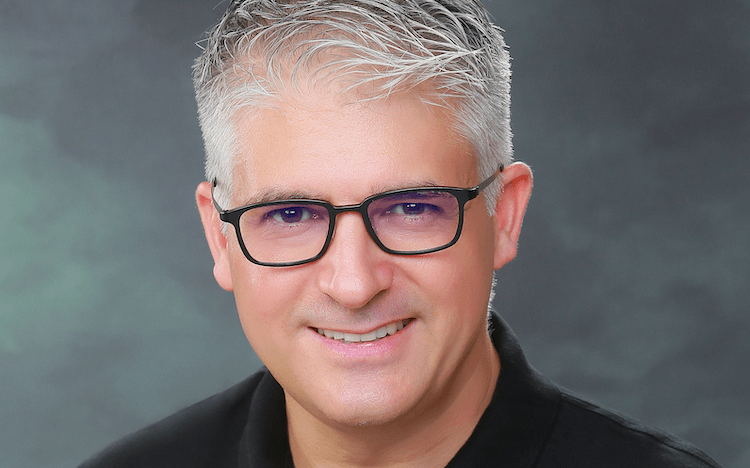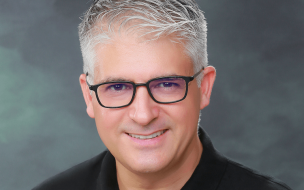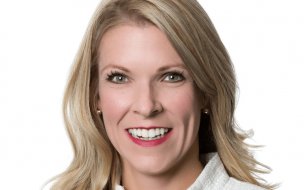From a young age, Thomas Mueller was racing up the career ladder with a job at a major apparel trading company.
What began as an apprenticeship in Switzerland turned into an “eye-opening” journey. Thomas worked in Italy, Greece, the UAE, Japan, and Hong Kong, as he progressed from a junior merchandiser to office manager in just a few years.
He says that the down-to-earth, roll-up-your-sleeves attitude of the company made it easy to dedicate his time and efforts. He quickly became hooked on the fashion industry.
In 2007, Thomas pursued his passion for jeans and set up his own denim supply company—Zamira Fashion Limited—where he designs and sources sustainable products for global clothing retailers and fashion brands.
He’s just completed the TRIUM Global EMBA, an international EMBA program he’s using to reinvent his business.
Since starting his EMBA, he’s introduced RE-FORM by Zamira Denim Lab, a collection to reform the traditional manufacturing of denim into a sustainable and eco-friendly one. Under the ‘Zamira Cares’ umbrella, Thomas is pushing sustainability initiatives and is recognized as a driving force in bringing change to the denim industry.
BusinessBecause caught up with Thomas to find out more.
Where did the idea for Zamira Fashion Limited come from?
By chance and luck, I was back in Hong Kong and I bumped into an old supplier who offered me a chance to start a business. “You make a business plan and, if like it, we will finance it!” he said.
That is how Zamira started, from a one-page business plan in 2007.
Why an Executive MBA?
An EMBA had been on my ‘bucket list’ for a long time, but in the early years of Zamira, it would not have been feasible for me to join any EMBA program as I had to totally dedicate my time and efforts to my business.
However, three years ago, as Zamira was in good shape and as stable as it could be in our industry, I told myself it is now or never. The application process itself was already a new experience, working on my CV (that had not been updated for 15 years) and sitting on the other side of an interview.
For me, at 48 years old, I only looked at the top three Global EMBA’s. Based on the truly global focus, the most senior [demographic] in terms of age and work experience, the caliber of faculty, the entrepreneurial element with Capstone and the six block modules, it quickly was clear that TRIUM was the right choice for me.
How have you used your EMBA experience to change your business?
One of the best experiences on the TRIUM program was the Capstone Project, which is very entrepreneurial. All of us pitch a business idea and, in mine, I convinced a team to join me and test an idea [called UrJeans] in a safe environment.
UrJeans is an app that lets consumers custom-finish a pair of jeans by picking the fit, color, wash effect, distresses, and more.
There are elements of my Capstone idea that I have already adopted and implemented into Zamira. For example, we have introduced a ‘pre-wash’ collection that gives our customers a high degree of flexibility to test new washes and benefit from very quick lead-times.
The Supply-Chain course was also highly relevant to my business. Our assignment was how can supply chain re-invent an existing business model. My current business model is based on big volumes and longer lead-times. But by analysing our supply chain and making some changes, we have introduced a new supply model that can meet the requirements in terms of speed, flexibility and small minimum quantities of the very fast growing online retail market.
How did the program change you as an entrepreneur?
[TRIUM] was a challenge. You are with peers and put in teams, and then you have to make the team work. Everybody has to contribute to the team, but there are no titles or hierarchy, which isn’t always easy.
Being in a team with peers taught me how to get things done with compromise, not by giving orders or making a decision by trying to convince people. That was a big leadership experience for me.
What advice do you have for anyone interested in starting their own business?
My early years were very hard work and I had to deal with a number of setbacks and adverse times. I had it all—the financial crisis, European retail crisis, and the cotton crisis.
Persistence, diligent work, and courage are key in these times. It took me five years, much longer than expected, to stabilize the business.
In the twelve years that Zamira has been going, I have re-invented and significantly changed our business model four times. I am in the midst of re-inventing Zamira’s business model again, using many aspects from what I learned at TRIUM.
With the volatility and massive distributions that affect our industry, as an entrepreneur you just always have to be on your toes. The second you become complacent; you could be wiped out.







